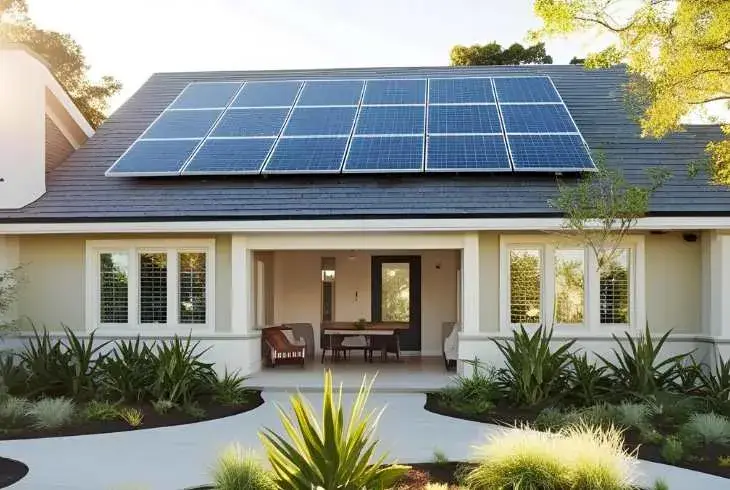How to Recycle Old Laptops: Step-by-Step Disposal Guide
Last Updated: Mar 19, 2025

You may have heard of recycling clothes, bulky items and whatnot. However, recycling old laptops is not often talked about. Recycling old or broken laptops is critical for preserving the environment, maintaining resources, and encouraging sustainability. When laptops and computers are unsuitably disposed of, they add to electronic trash, which can lead to harmful elements such as lead and mercury being released into the soil and water, affecting ecosystems and human health.
Why Recycle?
Recycling restores valuable resources like gold, silver, and copper, which reduces the need for mining and saves energy. Also, recycling laptops ensures that personal information is securely deleted, thus preventing identity theft.
Furthermore, it promotes a circular economy, creates jobs, and prevents e-waste from being dumped in impoverished nations. Finally, recycling is a responsible choice for the environment, society, and future generations.
If you want to be a part of a better and sustainable future, learn how to recycle your old laptops and discard them responsibly.
Recycle Your Old Laptops - A Step-by-Step Guide with Best Practices
Don't fret! With these easy and detailed steps, recycle and dispose of your old laptop without much of a hassle. We have curated the best practices with the most effect on our planet!
Step 1: Back Up and Transfer Data

- Backup Necessary Files Before abandoning your laptop, save your data on an external hard drive, cloud-based storage, or another device.
- Clean Your Laptop Use data-wiping software (such as DBAN or Eraser) to delete all personal information safely. You can also reinstall the operating system to restore the laptop to its initial settings.
Step 2: Remove the Battery

- Detach the Battery If your laptop has a detachable battery, remove it. Laptop batteries, like lithium-ion ones, typically need to be recycled separately due to their chemical makeup.
- Battery Recycling Look for recycling instructions on the battery itself, or bring it to a designated battery recycling centre.
Step 3: Check for Reusable Parts
If your laptop is functional, consider donating or selling it to someone who could benefit. If it's not working, assess if any parts (like the RAM, hard drive, or screen) can be salvaged or sold individually.
Step 4: Find a Certified E-Waste Recycler

- Find a certified e-waste recycling site near you. Many electronics stores (e.g., Best Buy, Staples) and manufacturers (e.g., Dell, Apple) offer take-back policies.
- You can also look online to locate recycling centres for your old laptop. Earth911 and Call2Recycle are great websites for this purpose.
Step 5: Drop Off or Mail Your Laptop

- Take your laptop to a recycling facility or, if mailing is available, use that option to send your old laptop to the recycling centre.
- Look for groups or organizations that provide free shipping labels for recycling devices.
Step 6: Explore Manufacturer or Retailer Programs
Step 7: Donate or Repurpose
- If your laptop still works, consider donating it to a school, non-profit, or community center. A great way to give back to the community!
- You can also repurpose your old laptop as a media server, home automation hub, or offline storage device.
Step 8: Dispose of Non-Recyclable Parts Responsibly
- Some components may not be recyclable. Consult your local waste management authority on how to discard these parts.
- Avoid disposing of any laptop parts in standard trash as they can harm the environment.
Tips to Consider and Explore
Tip #1: Look for Charitable Organizations
Old laptops can be refurbished and donated to those in need by organizations like Computers with Causes or World Computer Exchange.
Tip #2: Look for Repair Cafés or Tech Repair Stores
- Consider getting your laptop fixed or upgraded at local computer shops or "repair cafés".
- This can be a more environmentally friendly choice than recycling if repairs are inexpensive.
Tip #3: Use it As A Dedicated Device

Another great tip is to turn your old laptop into a single purpose device, such as;
- Set up a media center by installing software like Kodi or Plex to stream services.
- Use it as a gaming emulator for retro games.
- Create a digital photo frame or slideshow display.
- Transform it into a home automation hub for smart devices.
Tip #4: Explore Creative Upcycling Ideas
- Create art projects using the laptop's casing, keys, or screen.
- Repurpose it as home décor, such as an individualized clock or picture frame.
- Use it as an educational tool to teach children about computer hardware and programming concepts.
Tip #5: Repurpose for a Specific User
- Donate a functioning but slow laptop to someone who needs basic computing functionality.
- Consider giving it to a child for educational games or homework, or to an elderly relative for simple video calls or browsing.
Exploring these additional tips allows you to reuse, recycle or repurpose your old laptop for environmental benefits while helping others. Every small effort counts!
To Put it Simply
One of the most important ways to reduce e-waste and safeguard the environment is to recycle or repurpose your old laptop ethically. Options like donating, trading in, or using approved e-waste programs ensure that your equipment is handled sustainably.
You're not only helping the environment but also promoting a greener future by recycling laptops or finding innovative uses for them. Every effort counts, so remember that your decisions affect the environment and future generations.





